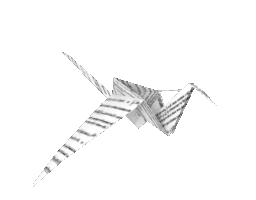All papers authored by Stephanie Bioulac

Refreshing results…

2021
Lucile Dupuy  ,
Charles M. Morin
,
Charles M. Morin  ,
Etienne de Sevin
,
Etienne de Sevin  ,
Jacques Taillard
,
Jacques Taillard  ,
Nathalie Salles
,
Nathalie Salles  ,
Stéphanie Bioulac
,
Stéphanie Bioulac  ,
Marc Auriacombe
,
Marc Auriacombe  ,
Jean‐Arthur Micoulaud‐Franchi
,
Jean‐Arthur Micoulaud‐Franchi  ,
Pierre Philip
,
Pierre Philip  Upload
Upload
 ,
Charles M. Morin
,
Charles M. Morin  ,
Etienne de Sevin
,
Etienne de Sevin  ,
Jacques Taillard
,
Jacques Taillard  ,
Nathalie Salles
,
Nathalie Salles  ,
Stéphanie Bioulac
,
Stéphanie Bioulac  ,
Marc Auriacombe
,
Marc Auriacombe  ,
Jean‐Arthur Micoulaud‐Franchi
,
Jean‐Arthur Micoulaud‐Franchi  ,
Pierre Philip
,
Pierre Philip  Upload
Upload

2020
Pierre Philip  ,
Lucile Dupuy
,
Lucile Dupuy  ,
Charles M. Morin
,
Charles M. Morin  ,
Etienne de Sevin
,
Etienne de Sevin  ,
Stéphanie Bioulac
,
Stéphanie Bioulac  ,
Jacques Taillard
,
Jacques Taillard  ,
Fuschia Serre
,
Fuschia Serre  ,
Marc Auriacombe
,
Marc Auriacombe  ,
Jean-Arthur Micoulaud-Franchi
,
Jean-Arthur Micoulaud-Franchi  Download from doi.org
Download from doi.org
 ,
Lucile Dupuy
,
Lucile Dupuy  ,
Charles M. Morin
,
Charles M. Morin  ,
Etienne de Sevin
,
Etienne de Sevin  ,
Stéphanie Bioulac
,
Stéphanie Bioulac  ,
Jacques Taillard
,
Jacques Taillard  ,
Fuschia Serre
,
Fuschia Serre  ,
Marc Auriacombe
,
Marc Auriacombe  ,
Jean-Arthur Micoulaud-Franchi
,
Jean-Arthur Micoulaud-Franchi  Download from doi.org
Download from doi.org

Pierre Philip  ,
Lucile Dupuy,
Charles M. Morin
,
Lucile Dupuy,
Charles M. Morin  ,
Etienne de Sevin
,
Etienne de Sevin  ,
Stéphanie Bioulac
,
Stéphanie Bioulac  ,
Jacques Taillard,
Fuschia Serre
,
Jacques Taillard,
Fuschia Serre  ,
Marc Auriacombe,
Jean-Arthur Micoulaud-Franchi
Upload
,
Marc Auriacombe,
Jean-Arthur Micoulaud-Franchi
Upload
 ,
Lucile Dupuy,
Charles M. Morin
,
Lucile Dupuy,
Charles M. Morin  ,
Etienne de Sevin
,
Etienne de Sevin  ,
Stéphanie Bioulac
,
Stéphanie Bioulac  ,
Jacques Taillard,
Fuschia Serre
,
Jacques Taillard,
Fuschia Serre  ,
Marc Auriacombe,
Jean-Arthur Micoulaud-Franchi
Upload
,
Marc Auriacombe,
Jean-Arthur Micoulaud-Franchi
Upload



Stéphanie Bioulac  ,
Diane Purper-Ouakil,
Tomas Ros,
Hilario Blasco-Fontecilla,
Marie Prats,
Louis Mayaud,
Daniel Brandeis
Download from link.springer.com
,
Diane Purper-Ouakil,
Tomas Ros,
Hilario Blasco-Fontecilla,
Marie Prats,
Louis Mayaud,
Daniel Brandeis
Download from link.springer.com
 ,
Diane Purper-Ouakil,
Tomas Ros,
Hilario Blasco-Fontecilla,
Marie Prats,
Louis Mayaud,
Daniel Brandeis
Download from link.springer.com
,
Diane Purper-Ouakil,
Tomas Ros,
Hilario Blasco-Fontecilla,
Marie Prats,
Louis Mayaud,
Daniel Brandeis
Download from link.springer.com


J.-M. Batail,
S. Bioulac  ,
F. Cabestaing,
C. Daudet,
D. Drapier,
M. Fouillen,
T. Fovet,
A. Hakoun,
R. Jardri,
C. Jeunet,
F. Lotte,
E. Maby,
J. Mattout,
T. Medani,
J.-A. Micoulaud-Franchi
,
F. Cabestaing,
C. Daudet,
D. Drapier,
M. Fouillen,
T. Fovet,
A. Hakoun,
R. Jardri,
C. Jeunet,
F. Lotte,
E. Maby,
J. Mattout,
T. Medani,
J.-A. Micoulaud-Franchi  and 5 other authors
and 5 other authors
 ,
F. Cabestaing,
C. Daudet,
D. Drapier,
M. Fouillen,
T. Fovet,
A. Hakoun,
R. Jardri,
C. Jeunet,
F. Lotte,
E. Maby,
J. Mattout,
T. Medani,
J.-A. Micoulaud-Franchi
,
F. Cabestaing,
C. Daudet,
D. Drapier,
M. Fouillen,
T. Fovet,
A. Hakoun,
R. Jardri,
C. Jeunet,
F. Lotte,
E. Maby,
J. Mattout,
T. Medani,
J.-A. Micoulaud-Franchi  and 5 other authors
and 5 other authors
EEG neurofeedback research: A fertile ground for psychiatry?
Upload



Jean-Arthur Micoulaud-Franchi,
Sébastien Weibel,
Margaret Weiss  ,
Marie Gachet,
Kelly Guichard,
Stéphanie Bioulac
,
Marie Gachet,
Kelly Guichard,
Stéphanie Bioulac  ,
Pierre Philip
,
Pierre Philip  ,
Isabelle Jaussent,
Yves Dauvilliers,
Régis Lopez
Upload
,
Isabelle Jaussent,
Yves Dauvilliers,
Régis Lopez
Upload
 ,
Marie Gachet,
Kelly Guichard,
Stéphanie Bioulac
,
Marie Gachet,
Kelly Guichard,
Stéphanie Bioulac  ,
Pierre Philip
,
Pierre Philip  ,
Isabelle Jaussent,
Yves Dauvilliers,
Régis Lopez
Upload
,
Isabelle Jaussent,
Yves Dauvilliers,
Régis Lopez
Upload




Jean-Arthur Micoulaud-Franchi,
Olivier Coste,
Stéphanie Bioulac  ,
Kelly Guichard,
Pierre-Jean Monteyrol,
Imad Ghorayeb,
Terri E. Weaver,
Sébastien Weibel,
Pierre Philip
,
Kelly Guichard,
Pierre-Jean Monteyrol,
Imad Ghorayeb,
Terri E. Weaver,
Sébastien Weibel,
Pierre Philip  Download from link.springer.com
Download from link.springer.com
 ,
Kelly Guichard,
Pierre-Jean Monteyrol,
Imad Ghorayeb,
Terri E. Weaver,
Sébastien Weibel,
Pierre Philip
,
Kelly Guichard,
Pierre-Jean Monteyrol,
Imad Ghorayeb,
Terri E. Weaver,
Sébastien Weibel,
Pierre Philip  Download from link.springer.com
Download from link.springer.com



Missing publications? Search for publications with a matching author name.